Unit 12. THE THEATRE AND CINEMA
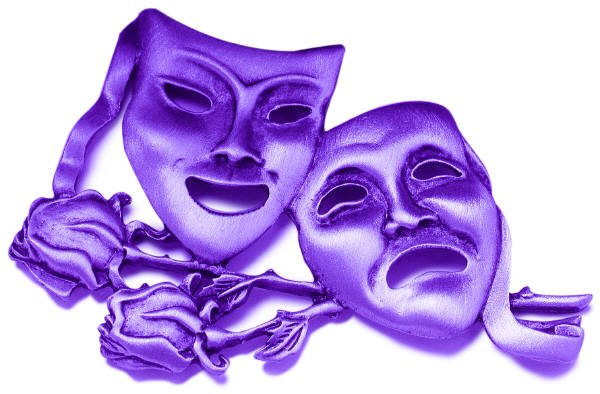
12.1. Listening Development
Assignment 1. Listen to the recording to Unit 12 and answer the questions below. Jot down the words and expressions to do with cinema, which the speakers define and exemplify after their dialogue and find their Russian equivalents.
Assignment 2. Listen to the second recording to Unit 12 about one of the leading figures in cinematography. Summarize what was said about this person mentioning the main points and organising them as if in an encyclopaedia article.
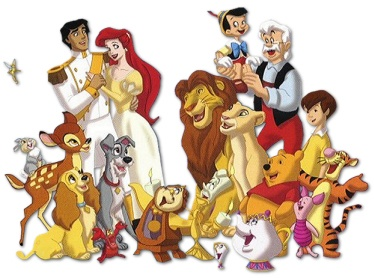
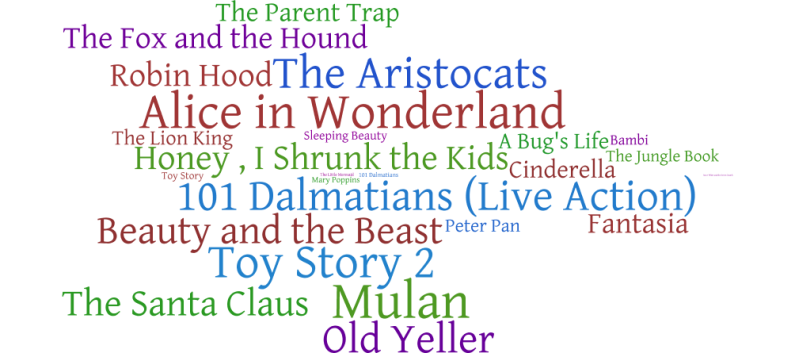
12.1. Listening Development
Assignment 1. Read the following tips on dos and don’ts of going to the theatre and guess the words that fit the meaning of the sentence.
DOS AND DON’TS OF GOING TO THE THEATRE
Going to the t can be a wonderful experience for seasoned patrons of the arts as well as first-timers. Remember that you are part of a large body of individuals: the a. Knowing how to conduct yourself properly will result in a more enjoyable experience not only for you but for everyone around you.
Do:
– Arrive early enough to be able to be seated before the c goes up. (If you are late, most theatres will not seat you until an appropriate break in the performance occurs.)
– Read the program beforehand to acquaint yourself with the a, the p and other interesting information about the c and the p. It will make your theatre experience that much more enjoyable.
– Turn off cell phones or anything else that will distract not only the p but the rest of the audience as well. Nothing is more unpleasant than the constant ringing and beeping of all these wireless devices during a live p. If you are a doctor on call or have small children at home with a babysitter, set your cell phone to vibrate in case of an emergency.
– B tickets early if you have a specific area in the theatre in which you wish to sit. Some shows sell out incredibly quickly. If you aren't too particular about where you sit, then rush seats or standing room only seats are often quite a bit cheaper than regular tickets.
– Dress appropriately. Jeans are not really suitable although more and more people are dressing "down" to go to the theatre. L performances are a special event for most of us. Get festive by dressing for the occasion. It's your chance to haul out something fancy that you don't get to wear that often.
Don't:
– Talk during the performance. Not only is it annoying to those around you, but it can distract the p as well.
– Sing along with the show. As much as you may think you have a great voice, people paid to see and hear the performers on s – not you.
– Get up in the middle of someone's solo. If you must get up before an a is over, try to plan it during an appropriate break in the action (like a s change) so as to make as little a disruption as possible
– Bring food to the t. Intermission is the time to get a snack or a drink and these items must be consumed in the appropriate areas.
– Always take in consideration how your conduct may affect those in the audience and those on stage. Use your own discretion and you will find that whether you're sitting in the audience or up on the stage yourself, live p are a wonderful way to spend your time.
Assignment 2. Give synonyms to the following words. Use the active vocabulary.
- to go to the opera -
- to give a performance -
- to stage a play -
- to play in “King Lear” -
- auditorium -
- to attract a large audience -
- to applaud -
- to bring down the house -
- to be a success -
- to appear
- pull a large audience
- put on a performance
- put on a play
- approve
- to cause tremendous applause
- to click with the public
- frequent the opera
- produce
- to present
- house
- clap
- to attend
- to cheer
- theatre
- to be a hit with the public
- to get over the footlights
- to win overwhelming approval from an audience
- to be in “King Lear”
- to deliver
- to draw
Assignment 3. Give derivatives:
1) theatre;
2) play;
3) to rehearse;
4) to applaud.
Assignment 4. Give all types of:
| theatre | play | parts of the auditorium | reaction of the audience |
- the audience roll in the aisle(s)
- vaudeville theatre
- musical comedy
- historical play
- variety theatre (syn. music hall)
- to bring the audience to their feet
- farce
- orchestra stalls
- satire theatre
- tremendous / thunderous / deafening / loud / great / heavy / ecstatic applause
- repertory theatre (ant. nonrepertory)
- balcony
- to bring down the house
- drama theatre
- unresponsive / cold / passive / listless audience
- open-air theatre
- stalls circle
- light / weak applause
- amateur theatre
- responsive audience
- tragedy
- drama
- to catcall an actor / to hiss an actor of the stage
- opera and ballet theatre
- to give cheering ovation
- tragi-comedy
- to break into applause
- comedy
- a storm of applause
- musical
- puppet theatre
- to feel like walking out
- amphithetre
- grand tier
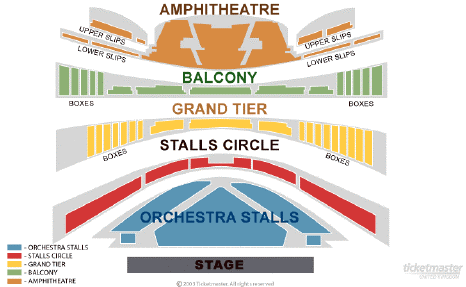
Assignment 5. Guess the words defined below.
- Somebody who reviews new films:
- A very famous actor or actress:
- What a critic writes about a new film:
- The person who tells the actors and actresses what to do:
- One small part of a film:
Assignment 6. Fill in the gaps with one of the following words.
portrays masterpiece role acting plot
- At the end of the play the ... clapped and cheered.
- The ... of Tiny Tim is played by an unknown actor.
- The film ... a new and talented actress.
- The ... is rather confusing at times.
- The opening ... is a churchyard at midnight.
- His love for Sophia is ... by his devotion to her.
- As a romance, it is a(n) ... of its kind.
- Al Pacino's ... is of his usual high standard.
- The part is well ... and very convincing.
- Tom Hanks ... a man suffering from AIDS in the film "Philadelphia".
Assignment 7. Put these words into the sentences below.
- Let’s sit at the back. I don’t like being too near the ....
- I like to sit in the front ....
- I find trying to read ... very annoying. I prefer dubbed films.
- I like seeing all the ... for the new films that are coming out.
- I usually stay at the end to read the ... because I like to know who some of the less important actors were.
Assignment 8. Match the film titles with the short descriptions.
|
|
Assignment 9. Read the following text and fill in the gaps with the right prepositions.
Anthony and Cleopatra at the National Theatre 1998
I have been an admirer Alan Rickman's work since 1982, and have seen him stage many times from 1983 onwards, so I have seen a great deal his work. It was great shock, therefore, that I read the appalling reviews the critics when the play first opened. Alan usually receives excellent notices, so what had gone wrong this time? It wasn't only Alan who came a critical roasting – the set design, the music, and many the minor performances were also heavily criticized.
Whatever problems there may have been backstage, (which I will probably never know about), it was clear that the set had caused some serious difficulties. Artistically, I have no arguments the set – the play covers several years time and numerous locations different countries, so it has to be flexible enough to accommodate this, and I liked the ingenuity which this difficulty had been addressed, however, the complexity the set did cause headaches the actors. The music, consisting percussion effects, was atmospheric, and not as obtrusive as had been suggested the reviews, although it was a little the loud side when I was seated the third row! a mid-stalls seat, it was fine.
The performances I saw shortly the play opened were variable. Helen Mirren and Finbar Lynch stood as Cleopatra and Enobarbus, but Alan was not turning the usual electrifying performance I have been used to seeing him – something was missing, but I couldn't be sure what, at that time. All the same, the reviews had not put the theatre-goers as the Olivier was full. (In fact, it was packed all three times I went. At the second viewing, mid-season, much had changed).
The set was behaving well, the actors were obviously used it, and Alan seemed to have relaxed a great deal. Now I began to see his performance what had been lacking before – the touches subtlety, the ironic inflections, and the little glances the audiences could react . Not his top capacity, yet, but much, much better. The other roles had not really come alive, but even so, the whole was much better than the first time, and I could hear people commenting how pleasantly surprised they were the poor reviews. At the last performance I saw, it had all – far too late, alas, – come together. Alan was giving the performance I would have expected him, vigorous, amusing, passionate, heartbroken, ironic. The audience gave the performance tumultuous applause and there were several curtain calls.
I have to add that the three performances I saw, Helen Mirren and Finbar Lynch never swayed excellent, but it was suddenly noticeable the third one, that all the other players' performances were lifted, and had a liveliness and fullness of character I had not seen previously. It seems a little simplistic to attribute all the difficulties the set, but this may well have been a large factor, not so much the set itself, but the lack time for the actors to feel comfortable it.
Assignment 10. Match the following theatre idioms with their definitions, and give their equivalents in Russian.
|
|
Then fill in the gaps in the sentences with the idioms above.
- Although John prepared his speech with great care, he always had a moment or two of when he addressed the public.
- There is always a lot of maneuvering before a new government is formed.
- Things haven't been the same since the new manager .
- As young as he is, he can still with his beautiful voice.
- Jeremy the caring nephew to perfection, but don’t let him fool you; it’s her money he is after.
- In a government reshuffle, one minister might another.
- A child’s is often his or her mother, father or a favourite teacher.
- You had better before you lose any customers.
- If you really want this job, you will have .
- Can you imagine speaking to a television audience of 150 million? I have several times.
- Although Borotra was one of the most brilliant tennis players, he sometimes .
- The scandal his promising career.
- After the writer had published her feelings about her unfaithful husband, she for some time.
- The majority of athletes who try are unsuccessful.
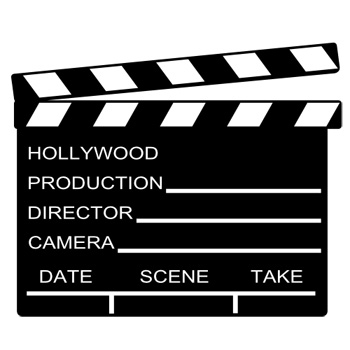
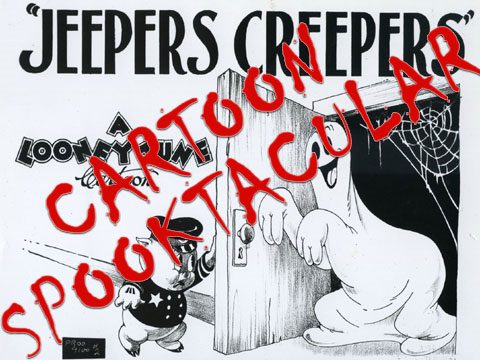
Assignment 11. Translate the following sentences from Russian into English. Use the Active Vocabulary section.
1. Кассир сказал, что все места в партере распроданы. Нам пришлось заказать места в бельэтаже.
2. Спасибо за то, что Вы купили мне билет на этот спектакль. Мне очень понравилось, как поставлена эта пьеса.
3. Увы, все билеты на спектакль распроданы.
4. Мы получили удовольствие от игры актеров, уж не говоря о декорациях, которые были великолепны.
5. Мне не удалось заказать билеты на премьеру заранее, поэтому мне пришлось стоять в очереди в кассу.
6. Попробуй купить билеты на балкон. Оттуда лучше видна сцена.
7. Прошу прощения, что так говорю, но я не жалею, что пропустил этот спектакль. Это был полный провал.
8. Я была восхищена игрой ведущей актрисы, вызвавшей слезы у зрителей.
9. Говорят, что он смотрел фильм «Титаник» пять раз, так как он большой поклонник главной актрисы.
10. Состав исполнителей в этом спектакле великолепен. Он, несомненно, будет пользоваться большой популярностью у зрителей.
11. У меня нет никакого желания смотреть этот спектакль, так как пьеса поставлена очень плохо, а игра актеров оставляет желать лучшего.
12. Я была очарована музыкой и декорациями, которые были великолепны.
13. Сидя в третьем ряду бельэтажа, я хорошо видел сцену.
14. Известно, что эта пьеса была поставлена дважды. И каждый раз она сопровождалась провалом.
15. Я отказалась от надежды купить билеты на премьеру, так как все билеты были давно распроданы заранее.
16. Посмотрев спектакль дважды, я могу сказать, что это лучшая постановка комедии Шекспира, которую я когда-либо видел.
12.3. Reading Improvement
Assignment 1. You are going to read a review from a music magazine. For Questions 1-15, choose from the albums reviewed (A-E). Some of the albums may be chosen more than once. When more than one answer is required, these may be given in any order.
Of which album(s) are the following statements true?
| Additional interesting material comes with the album. | 1 - | |
| All the music is taken from public performances. | 2- | |
| Some of the music has not been heard in public before. | 3 - | |
| The album contains music recorded after one of the performers died. | 4 - | |
| One of the items has recently been a big hit. | 5 - | |
| The new version of the album contains more items than the original. | 6 - | 7 - |
| The album was produced after musical experiments. | 8 - | |
| The recordings show how artists can find it difficult to keep up standards. | 9 - | 10 - |
| The playing on the album lacks originality. | 11 - | |
| The majority of the music does not live up to its description. | 12 - | |
| The title of the album was taken from a programme about the performers. | 13 - | |
| The original album was made to meet legal obligations. | 14 - | |
| It is much better than similar albums. | 15 - |
MIKE BURWOOD looks at a selection of music albums which are making their second appearance on the recording scene.
(A) AMPLIFIED ART
By Everything But The Girl
Most record buyers probably weren't even aware of this album's original release 18 months ago. Everything But The Girl's seventh studio LP created hardly any interest among a public for whom the band's brand of guitar-playing had long been little more than a feeble copy of other musicians. Re-released now, following the huge success of the popular single Missing, the album's selection of basically pointless songs seems more tired than ever. Only the new version of Missing makes any lasting impression and provides a reminder of the power once found at the heart of Everything But The Girl's music.
(B) A GREAT DAY IN HARLEM
by Various Artists
At last, an alternative to the terrible collections so often sold as introductions to jazz! A Great Day in Harlem is based on a delightful documentary of the same name which tells the story of how some of the finest musicians in jazz history came to be photographed together in front of a New York building in 1958. Excellent examples of the work of 18 of them are found on 12 recordings with dates ranging from 1936 to 1994. Particular successes are Count Basie with his band, including Lester Young, and Charles Mingus's original version of GoodbyePork Pie Hat, written in memory of the same Lester Young only two months after his death and less than a year after the original photo was taken.
(C) HERE AND THERE
by Elton John
This was originally produced in 1976 simply to satisfy the requirements of Elton's contract with his record company. At that time, it consisted of ten songs put together from shows in London and New York, but it has now expanded to a 'greatest live hits' format with 16 more songs from those nights. Three of these -Whatever Gets You Through The Night, Lucy in The Sky With Diamonds and I Saw Her Standing There – feature John Lennon in his last onstage appearance.
(D) WHO'S NEXT
by The Who
Considered by many to be the band's best, 1971's Who's Next was their only Number 1 album. Like many projects, it was developed from an earlier idea, in this case an attempt to combine rock-music opera with the limited technology of the time. With seven extra songs, four of them previously unreleased, notes by one of the band members and previously unseen photographs, this is definitely a collector's item.
(E) KING OF THE DRUMS
by Sandy Nelson
Despite the enthusiasm of the accompanying notes, this album really centres on just one masterpiece – the 1961 instrumental hit Let There Be Drums, with its marvellous rhythms and rousing guitar-playing. Let There Be Drums actually followed another hit – the inferior Teen Beat – and Nelson spent the remainder of the 1960s trying unsuccessfully to produce similar hits. All these attempts are gathered among the 24 pieces here and this album provides a lesson in just how short a musician's stay at the top can be.
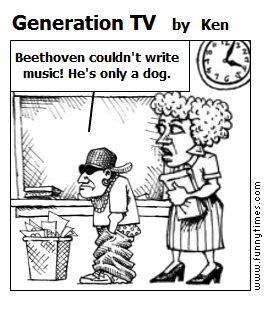
Assignment 2. You are going to read an article about the artists who draw animated cartoons. To answer the questions below, choose from the people (A-D). The people may be chosen more than once.

Which artist
| Dan Taylor | Colin Grey | David Hoxton | Carl Hughes |
- used to consider drawing was a pastime?
- went abroad to find work?
- helped an arts school financially?
- thinks the ability to tell a good story is essential?
- thinks people who are good at drawing find jobs easily?
- thinks computers will replace skilled cartoonists?
- wants to attract adult audiences?
- says some artists are afraid of losing independence?
- thinks art schools do not teach students basic skills?
- runs a course for trainees?
- says many good cartoon artists work in advertising?
- will display his work for the public to see?
- likes being part of a large team?
- used to do drawings for colleagues?
- has invested in new equipment?
JOBS IN CARTOON ANIMATION
The future seems bright for animators, the artists who can make cartoons come to life. Four cartoonists give their impressions.
(A) Dan Taylor is delighted that TV shows are now often inhabited by 'animated' cartoon characters. 'On paper the character you create is just a drawing,' he says, 'but then you give it movement, and it becomes a real TV personality.' Dan passed his art exams when he was at secondary school, but for many years he treated his drawing as a hobby. He would create images for his work mates, to be stuck on motorbikes or leather jackets. Eventually, he signed up at the Arts Institute to start a career as an animator. 'There is plenty of work around for people who can draw because cartoon shows can win sizeable audiences around the world,' he says. Dan would like to create cartoons that cross the boundary from children's animation to animated characters for grown-ups, with issues that interest them. Many of his ideas for future series will be on show at the annual animation festival in Bradford next September.
(B) As head of animation of Grant Studios, Colin Grey sees his work load grow day by day. 'There is a huge public taste for animation,' he says, 'but we still lack skilled artists because the publicity industry has employed lots of people who are now busy designing ads.' Recognising the need to encourage training, Grey has just given some funds to the university for an arts school qualification in animation. 'This is a good investment of some of our profits,' he says. Grey believes another problem is that many animators are often reluctant to go for jobs in the big organisations. 'They fear large-scale projects will take away their freedom of action,' he says. He is trying to bring a bit more of the US way of working to bear on his current projects. 'Of course production methods have changed since Walt Disney put together his first animation. Now studios can create a character and have it animated in a different country.'
(3) Despite the recent demand for cartoon artists in Europe, David Hoxton found that the only way to get his ideal job was to leave England and try his luck in the USA. 'Their way of working is with large numbers of people working on each series of drawings,' he says, 'I'd always dreamt of working in such a way, producing the thousands of drawings necessary to bring characters to life.' Hoxton thinks his job requires excellent drawing techniques, something he feels is often neglected in schools. 'Colleges of art encourage independent thinking, which is good, but some of them have lost their way when it comes to teaching the essentials." He admits that computers can now do the translating of a drawing into a moving image, but he is convinced the skilled artist will always be in demand.
(4) Carl Hughes is the owner and chief animator of Manton Hall Films, one of the biggest animator outfits in Europe. In the last three years, he has spent £10m on new machines to compete with international rivals. The reward has been a string of contracts to animate US shows at its offices in England. 'We believe training our staff is very important,' he says, 'I offer them a series of classes within a 12-week intensive programme. After that, they join the teams on particular shows.' Hughes believes what he needs most is artists who have artistic potential, not so much the ability to draw as the ability to develop the plot of a narrative, an interesting plot that will interest the audience. He knows that many people in the industry are crying out for highly-skilled animators to get involved in the development of shows, but he thinks the future of all that area of work lies with computers. 'Eventually they will do away with the need for artists,' he says.
12.4. Writing Enhancement
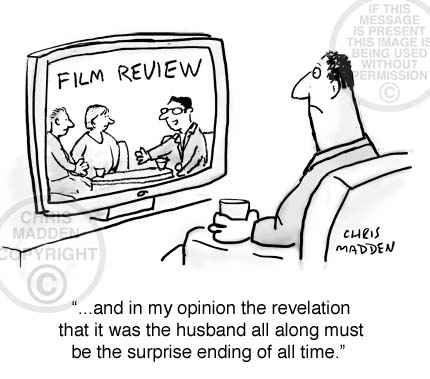
Assignment 1. Red the instructions how to write a review.
- A review is a brief description of a book, film, play etc. A review gives the main points of the plot including the writer's comments / recommendation of the book, play or film.
- When writing a review, consider the tenses you should use for each paragraph. When describing the plot, the present tense should be used. Paragraphs should include more than one sentence. When a new topic is introduced, begin a new paragraph. Your recommendation or judgment should be included in the conclusion. Always give good reasons to support your comments / opinions.
- The style of a review can be formal or informal depending on the publication.
Outline for a review

When writing a review consider:
- where the story is set (place, time)
- what kind of story it is (adventure, western, thriller etc)
- the acting / direction/production (well acted / directed etc)
- the plot (entertaining / boring? What makes it enjoyable / dull?)/the script (well / badly written)
- whether you would recommend the film / book to your readers or not
Assignment 2. Read the review below and spot the topic of each paragraph. Then answer the following questions:
- Where is the film set?
- Who are the stars of the film?
- What is the plot of the film?
- Is the film recommended?
“Scent of a woman” is a dramatic film set on the East coast of America. Al Pachino plays the starring role as a retired blind colonel who has become lonely and bitter.
The colonel’s daughter, who finds his blindness and hostile attitude tiring, advertises for a student companion for him over the Thanksgiving holiday. A poor scholarship student at an expensive East Coast School, played by Chris O’Donnel, replies to the advertisement and is forced into accompanying the colonel on a pressure-seeking weekend in New York. It is only later that he discovers that the colonel is planning to kill himself. Chris O’Donnel is convincing as a scared and embarrassed young school boy – but can he manage to prevent a tragic ending?
“Scent of a woman” is well directed by Martin Brest and includes some pleasing scenes, including an adventure behind the wheel of a Ferrari and Al Pachino’s elegant tango with a beautiful young girl.
The plot is believable and entertaining at times. See the film and find out!
Assignment 3. Read the review below and put the paragraphs in the correct order. Then say which tenses are used to describe the plot of the story. Finally find the purpose of each paragraph.
“SHIRLEY” BY CHARLOTTE BRONTË
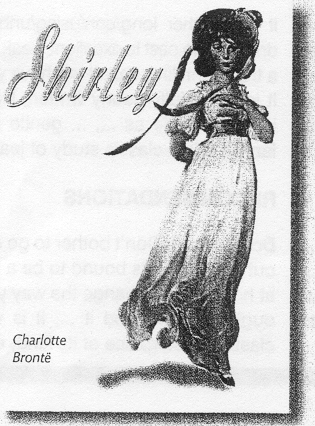
|
Assignment 3. Write a review about a film you have recently seen for an entertainment magazine (approx. 250 words). Make use of the appropriate vocabulary.
12.5. Speaking Reinforcement
Assignment 1. Get ready to discuss the following questions with one or two of your groupmates. Make sure to use active vocabulary.
- What is your favourite movie?
- What kind of movies do you like best?
- Are there any kinds of movies that you particularly dislike? If so, what are they? Why do you dislike them?
- What movie genres do you know?
- Do you often watch movies at home?
- How often do you go to the cinema?
- Do you often rent videos / DVDs?
- Do you watch movies on your computer?
- Do you find downloading movies from the Internet a theft?
- Do you prefer fiction or non-fiction movies?
- If a movie is based on a book, do you prefer to read the book or see the movie first?
- What are the most important factors in evaluating movies?
- How important is the director of the movie?
- How important is the cast in the movie?
- How important are the special effects in the movie?
- How important is the soundtrack of the movie?
- How important is the plot of the movie?
- Do you like scary movies?
- Do you like funny movies?
- Do you like romantic movies?
- Do you like animated movies?
- Has any movie ever made you cry?
- Who is your favourite movie actor?
- Who is your favourite movie actress?
- Who is your favourite movie director?
- What is your favourite movie soundtrack?
- Would you like to be a film star?
- What kind of character would you like to play?
- What was the last movie you saw? Did you like it?
- Have you ever been in a film festival?
- Are there any film festivals in your country?
- Has any film artist from your country got an Oscar? If so, who and for which category?
- What kinds of movies have an educational value?
- What kinds of movies have a negative impact on children?
- Is it acceptable to show nudity in movies in your country?
- Is it acceptable to show violence in movies in your country?
- Do you think there is too much violence in movies?
- Do you think there is too much nudity in movies?
- Have movie trends changed over time? In what ways?
Assignment 2. Choose a film recently seen by the whole class and prepare to act out a talk show “Moviewatch”. Take a part from the list below and act accordingly:
- A TV host / ess
- A film director
- Leading actors / actresses
- Supporting actors / actresses
- Critics
- Cinema goers (a cameraman, stuntmen, a costume designer, a composer, a choreographer, etc.)